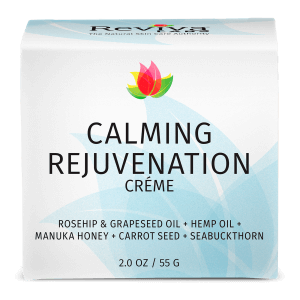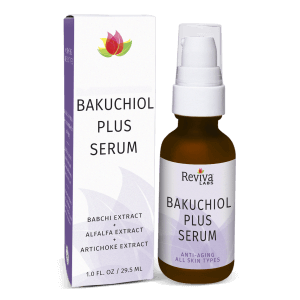Ingredients, Natural, Reviva Labs, Skin Care
The Role of Essential Fatty Acids (EFAs) in Skincare
In the realm of skincare, essential fatty acids (EFAs) are often heralded as the unsung heroes. These remarkable nutrients, vital for maintaining healthy skin, are not produced by our bodies and thus must be obtained through our diet or skincare products. Essential fatty acids are key components in the skin’s lipid layer, contributing to its hydration, pliability, and overall health. Two primary types of EFAs are found in skincare: Omega-3 (alpha-linolenic acid) and Omega-6 (linoleic acid).
The Science Behind EFAs and Skin Health
The benefits of EFAs in skincare are rooted in science. These acids play a crucial role in cellular health and are integral in the formation of healthy cell membranes. This not only keeps the skin hydrated but also ensures that essential nutrients are effectively absorbed while harmful toxins are kept out. Omega-3 fatty acids, in particular, are known for their anti-inflammatory properties, making them beneficial for those with sensitive or acne-prone skin. On the other hand, Omega-6 fatty acids are vital in skin repair and regeneration, helping to maintain the skin’s barrier function.
EFAs in Moisturization and Anti-Aging
One of the most significant benefits of essential fatty acids in skincare is their ability to deeply moisturize the skin. By reinforcing the skin’s lipid barrier, EFAs help to lock in moisture, keeping the skin hydrated and plump. This not only alleviates dryness but also reduces the appearance of fine lines and wrinkles, making EFAs an excellent ingredient for anti-aging skincare products. Regular use of EFA-rich products can result in smoother, more youthful-looking skin.
Essential Fatty Acids for Sensitive Skin
For those with sensitive skin, EFAs can be a game-changer. Their anti-inflammatory properties help to soothe irritation, redness, and swelling, making them ideal for skin conditions such as eczema, psoriasis, and rosacea. By strengthening the skin’s natural barrier, EFAs also help to protect sensitive skin from environmental stressors like pollutants and allergens.
Incorporating EFAs into Your Skincare Routine
Adding essential fatty acids to your skincare routine is simple and can be done in various ways. Look for skincare products like serums, creams, and oils that list EFAs or sources of EFAs (like flaxseed oil, fish oil, or evening primrose oil) among their ingredients. It’s important to choose products that suit your skin type and address your specific concerns. For example, those with oily skin might prefer lightweight serums, whereas those with dry skin might benefit from richer creams or oils.
Natural Sources of EFAs in Skincare
Natural skincare enthusiasts can find EFAs in numerous plant-based oils. Oils such as rosehip, jojoba, and argan are not only rich in essential fatty acids but also in antioxidants and vitamins that further nourish the skin. These natural oils can be used on their own or found as key ingredients in organic skincare products.
The Importance of Balanced EFAs
While incorporating EFAs into your skincare routine, it’s essential to maintain a balance between Omega-3 and Omega-6 fatty acids. An imbalance, particularly an excess of Omega-6, can lead to skin issues such as increased inflammation or acne. Therefore, choosing skincare products that offer a balanced blend of these fatty acids is crucial for optimal skin health.
EFAs and Sun Protection
Essential fatty acids also play a role in protecting the skin from sun damage. They help to reinforce the skin’s natural barrier, reducing the impact of UV rays. However, it’s important to note that EFAs are not a substitute for sunscreen. For complete sun protection, use EFA-rich skincare products in conjunction with a broad-spectrum sunscreen.
Diet and Essential Fatty Acids
In addition to topical application, consuming a diet rich in EFAs can profoundly impact skin health. Foods like salmon, walnuts, flaxseeds, and chia seeds are excellent sources of Omega-3 fatty acids, while sunflower seeds, eggs, and poultry are good sources of Omega-6. A balanced diet ensures that your skin receives these vital nutrients from both inside and out.
Understanding Essential Fatty Acids
Essential fatty acids are a cornerstone of effective skincare, offering a multitude of benefits from deep moisturization to anti-aging and anti-inflammatory properties. Whether through topical application or dietary intake, ensuring a sufficient and balanced supply of EFAs can lead to healthier, more resilient, and more youthful-looking skin. As with any skincare ingredient, it’s important to choose high-quality products and to be mindful of how your skin responds, adjusting your routine as needed for optimal results.









